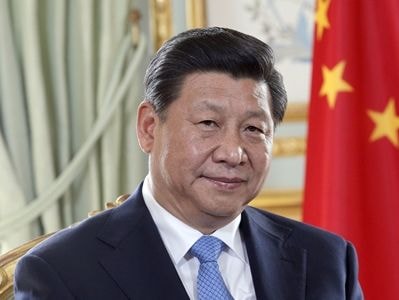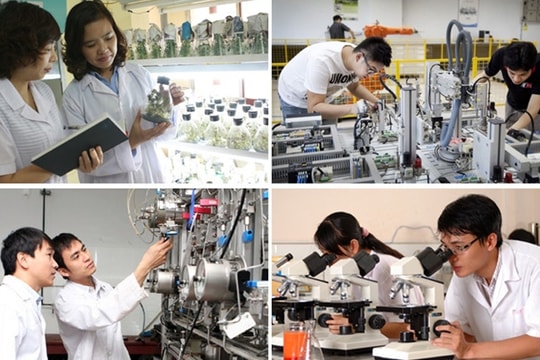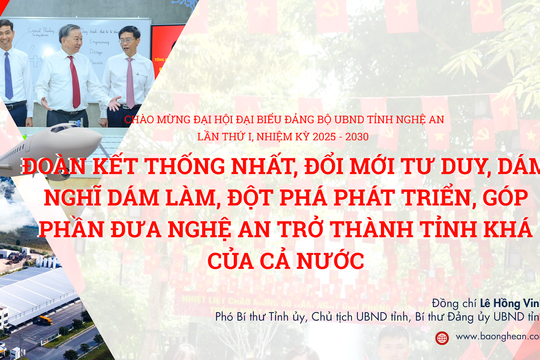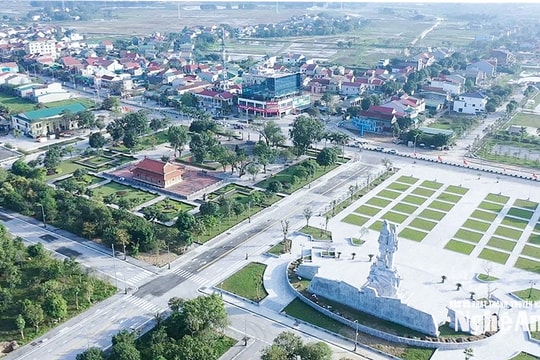Why is the 19th Congress considered the third milestone of the Communist Party of China?
The 19th Congress is considered to be of equal importance to Mao Zedong's founding of the People's Republic of China in 1949 and Deng Xiaoping's launching of the economic reform and opening-up policy in the late 1970s.
On October 18, 2017, an important political event attracted not only the attention of the Chinese people but also international public opinion: the 19th National Congress of the Communist Party of China took place in Beijing. Here, the Congress will elect the 19th Central Committee of the Party and the 19th Central Commission for Discipline Inspection of the Party, elect the General Secretary, the Politburo, the Politburo Standing Committee, the Central Secretariat and the Central Military Commission of China.
 |
| General Secretary of the Communist Party of China Xi Jinping. Photo Internet |
The 19th Congress is considered to be of equal importance to Mao Zedong's founding of the People's Republic of China in 1949 and Deng Xiaoping's launching of the economic reform and opening-up policy in the late 1970s.
This is likely to lead to the recognition of President Xi Jinping as China's third supreme leader after Mao Zedong and Deng Xiaoping, creating conditions for Xi to continue promoting the "Chinese Dream" concept he initiated, according to Asia Times.
At a press conference to announce the upcoming party congress, Jiang Jianguo, deputy head of the Central Propaganda Department, said that the 19th Party Congress “will not only set tasks for the next five years, but also for the next two to three decades.” In other words, the congress will set the agenda for the Communist Party and the country over a long period of time. The 20-30 year figure also coincides with the time frame for Xi’s “China Dream.”
In 2012, when he took power after the 18th Party Congress, Xi put forward the concept of “the great rejuvenation of the Chinese nation.” To realize this dream, Xi set two goals: to build China into a moderately prosperous society in all respects by 2021, when the party celebrates its 100th anniversary, and to achieve the goal of Chinese rejuvenation by 2049, when the country celebrates its 100th anniversary. China has 32 years ahead to realize these goals.
Xi’s China dream appears to have three stages: the rise of the Chinese nation, becoming rich and strong. As he said in a speech in late July: “The Chinese nation, having gone through misfortunes and hardships since the contemporary era, has made a historic leap to become more prosperous and stronger. The determination to stand up and become rich and stronger now represents a new challenge for China. We must be prepared mentally, theoretically and systematically.”
The third milestone in history
In China, people often say that Mao Zedong led the Chinese nation to rise, Deng Xiaoping made the nation rich, and Xi Jinping was given the task of paving the way for the nation to become stronger in the 21st century.
If Xi succeeds in this task, he will surely become the leader who made history after Mao Zedong and Deng Xiaoping. As the 19th congress will focus on measures to realize the final stage of the “Chinese Dream,” the event is being hailed as the third milestone in the history of the Chinese Communist Party and the Chinese nation.
Asia Times commentator Wu Zhong said it would not be surprising if the 19th congress would amend the party charter to incorporate Xi Jinping's thought as the guiding ideology of the CPC.
The current CPC constitution stipulates that the party adheres to Mao Zedong Thought, Deng Xiaoping Theory, the Theory of Three Represents (the CPC represents advanced productive forces, advanced culture and the interests of the overwhelming majority of the Chinese people) and the Scientific Outlook on Development as its guidelines for all actions. The Theory of Three Represents was initiated by former General Secretary Jiang Zemin, while the Scientific Outlook on Development was proposed by Xi's predecessor, Hu Jintao.
However, the names of these two leaders are not mentioned in the party charter. Wu Zhong believes that if Xi Jinping's thought is written into the party charter as part of the guiding ideology with Xi Jinping's name also mentioned, this means he is considered a supreme leader on par with Mao Zedong and Deng Xiaoping.
In fact, with his tight control of the military, only Xi can be considered a strong leader like Mao and Deng. Jiang Zemin and Hu Jintao have no military experience and have relied on senior generals, many of whom have fallen from power due to corruption allegations.
On the economic front, since the CPC aims to make China a powerful nation in the next two decades, it is safe to assume that the CPC will task itself with continuing to promote economic growth through reform and opening up. This was evident in remarks made by Chinese Vice Premier Liu Yandong during her visit to the United States in late September. During that visit, she told former US Secretary of State Henry Kissinger that China would further open up its economy after the 19th Party Congress.
It is likely that China's economy will continue to grow at its current pace or faster in the coming years, although this congress may not set specific growth targets, Wu Zhong assessed.
4 confidence
A statement after a meeting of the Politburo of China on August 31 said that "the whole party and the whole country must maintain and enhance confidence in the path of socialism with Chinese characteristics, confidence in theory, confidence in the system and confidence in culture."
These four confidences, summarized by Mr. Xi himself, clearly demonstrate that China does not accept being "Westernized".
A Pew Research Center survey last year found that more than 80% of Chinese people are satisfied with the direction their country is taking. Three-quarters of Chinese see their country playing a larger role in global affairs than it did 10 years ago, and 60% view China’s participation in the global economy as positive.
In July, an article in the Wall Street Journal titled “The New Challenge to American Power: Chinese Exceptionalism” stated: “President Xi Jinping is anchoring China as a confident global power at a time when America’s leadership role seems uncertain.”
However, according to the Economist, in the next decade, a series of China's simmering problems will become more apparent and may become obstacles to the country's ambitions. Along with the rapid growth of the economy, the air and land will be more polluted. The gender imbalance, with a surplus of men and a shortage of women in the population, will also be evident when the generation born during China's one-child policy reaches marriage age. The country will also have to deal with the huge debts of local governments and state-owned enterprises.
China’s ambitions to become a regional power and leader have also been hampered by its allies in Northeast Asia. Beijing’s reluctance to rein in North Korean leader Kim Jong-un’s nuclear weapons program has led to greater U.S. involvement in Asia and has prompted Japan and South Korea to consider developing their own nuclear deterrents, which China sees as counter to its interests.
“A big open question is whether Mr Xi’s goals are the right direction for his country,” the Economist commentary said.
According to VNE/VNN/TTXVN
| RELATED NEWS |
|---|



.jpg)
.jpg)



